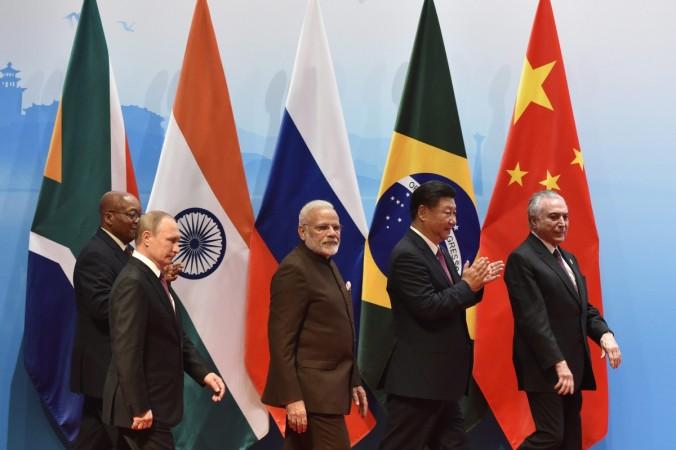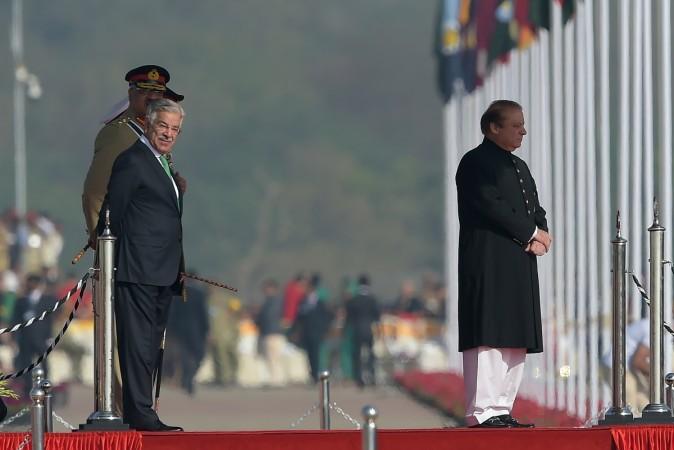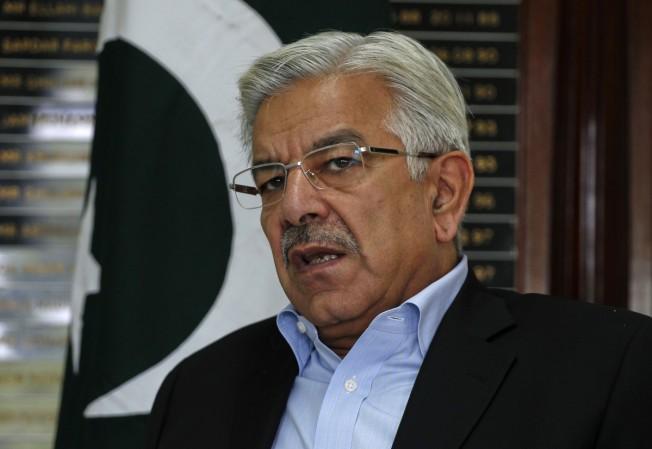Amid increasing international pressure on Pakistan to act against terror groups emanating from its soil, the country's Foreign Minister Khawaja Asif on Tuesday admitted that terror outfits like Lashkar-e-Taiba (LeT) and Jaish-e-Mohammad (JeM) are operating within his country.
"Friends (China) should not be tested (every time), particularly in the changed scenario. Instead, we should impose some restrictions on the activities of the elements like LeT and JeM, so that we can show the global community that we have put our house in order," Asif said while speaking on a Geo News programme called Capital Talk on Tuesday.
The foreign minister said: "I am not making a political statement but telling you a fact: we will continue to face such embarrassment on an international level till the time we keep our eyes off these [militant] organisations in our country."
He added: "We need to make a clean break from our past; in 1979, we made a wrong decision and acted as a proxy for the entire next decade. After 9/11, we again made a wrong decision and adopted a war which was never ours. We have bore uncountable losses of lives and properties in this war."

The Brazil-Russia-India-China-South Africa (BRICS) grouping had named Pakistan-based outfits LeT and JeM as terrorist organisations at the 9th BRICS Summit held in Xiamen on Monday. The declaration also listed Tehreek-i-Taliban Pakistan (TTP) and Hizb ut-Tahrir as terror outfits, while expressing concern over the security situation in the region.
"We strongly condemn terrorist attacks resulting in death to innocent Afghan nationals.... We, in this regard, express concern on the security situation in the region and violence caused by the Taliban, ISIL/DAISH, Al Qaida and its affiliates including Eastern Turkistan Islamic Movement, Islamic Movement of Uzbekistan, the Haqqani network, Lashkar-e-Taiba, Jaish-e-Mohammed, TTP and Hizb ut-Tahrir," the declaration had said.
"We deplore all terrorist attacks worldwide, including attacks in BRICS countries, and condemn terrorism in all its forms and manifestations wherever committed and by whomsoever and stress that there can be no justification whatsoever for any act of terrorism. We reaffirm that those responsible for committing, organising, or supporting terrorist acts must be held accountable," it added.

Commenting on the BRICS declaration, Asif said that he was unable to understand why people were so surprised about the terror groups named by the BRICS leaders in the declaration. The terror outfits named in the list are also banned in Pakistan. He also praised China for naming TTP as a terror outfit claiming that the group is based in Afghanistan but carries out terror attacks in Pakistan.
However, Pakistan had rejected the BRICS declaration, saying the nation was not a safe haven for terrorists. China, with whom Pakistan shares a close friendship, was also part of the declaration, and agreed to include terror groups based in Pakistan in the BRICS declaration — in a first.
"We reject the declaration [released by member countries] at the BRICS Summit," Defence Minister Khurram Dastagir had said during a meeting of the National Assembly's Standing Committee on Defence on Tuesday.
"Forty percent of Afghanistan is a safe haven for terrorists... Pakistan has taken action against all groups on its soil and only the remnants of some are left," Dastagir told the reporters later.
BRICS declaration not against Pakistan?
Adding that Pakistan had only one enemy nation at the BRICS Summit, Asif said the naming of terror outfits in the south Asia region cannot be seen as a failure of the country's foreign policy as the declaration was not against Pakistan.

However, he added that Pakistan needs to put in place a new foreign policy in accordance with the situation in the region. He also said the new foreign policy must be made keeping in mind only the interests and integrity of the nation.
Reiterating that China was a trustworthy friend of Pakistan, Asif said China's role in the BRICS declaration must not be considered as its official position as the group also includes four other countries — Russia, India, Brazil and South Africa.
He also said Pakistan needs to introspect on whether it has acted upon the National Action Plan (NAP) made in 2014. "Did we do our work? Did we implement the NAP, did we complete the process of de-radicalisation, did we bring the activities of banned outfits to a halt or are they active and even participating in politics with changed names?" he asked.
Asif also said the country needs to "make a clean break from our past" now that the "entire world is pointing fingers towards us."
He also said: "Did we take the measures we had decided on, besides Operation Zarb-i-Azb, Raddul Fassad and Khyber 4, during the last three years? Did we show the world that we acted according to the resolve we made in 2014?"

















